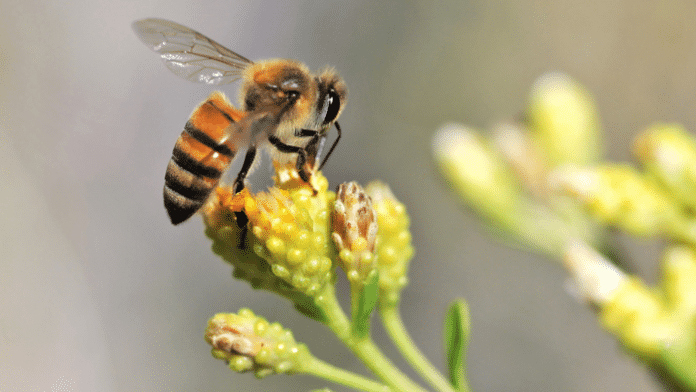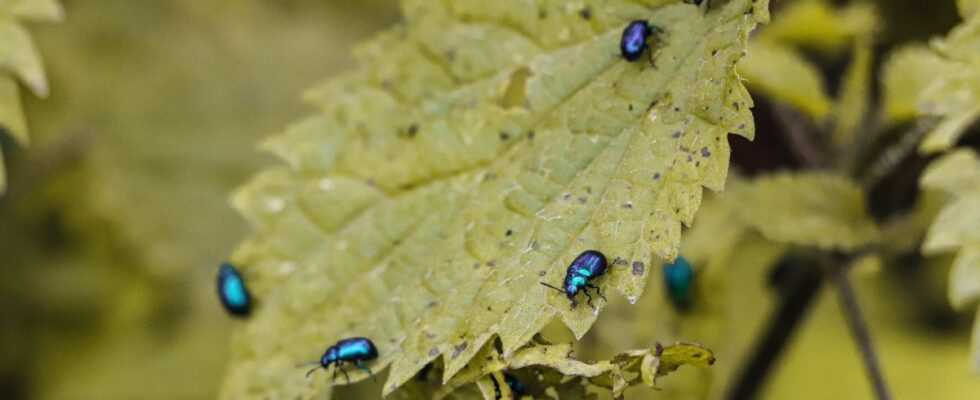Insects in German nature reserves are contaminated with a large number of pesticides. This is the result of a new study published in the journal “Scientific Reports”, in which the Entomological Association Krefeld was involved. According to the study, insects in German nature reserves are contaminated with an average of 16 different pesticides. Since the active ingredients can reduce insect populations and thus impair the functionality of ecosystems, the researchers advocate creating spacious buffer zones around nature reserves in which the use of pesticides is drastically restricted. This demand is supported by the Federal Environment Agency. “That is a good idea,” said Dirk Süßenbach, UBA expert for pesticides, on request.
Between May and August 2020, the so-called Natura2000 network insects were collected using a standardized method and then examined for 92 commercially available pesticides.
Entry into protected areas from a radius of two kilometers
In total, the scientists found 47 different chemical active ingredients in the nature reserves that are used to combat unwanted wild plants, insects and fungi in agricultural cultivation. Of these, 13 herbicides were used against wild plants, 28 were fungicides against fungi and 6 were insecticides. In 16 of the 21 areas, an active ingredient from the class of neonicotinoids that has now been banned was found, which the researchers attribute to increased use shortly before the ban came into force.
The Entomological Association Krefeld sees the results as a warning that previous efforts to protect the insect world are insufficient. “Progressive, regional loss of species” would be tolerated. Martin Sorg from the Entomological Association in Krefeld judged that protected areas in which populations of the regional or national endangered insect species are located are contaminated with so many active substances.
An analysis of the agriculturally used areas around the protected areas showed that the active ingredients discovered there did not only come from the immediate vicinity, but from a radius of two kilometers.
The Krefeld Association was the driving force behind a long-term study known in specialist circles as the “Krefeld Study”, which came to the conclusion that within 27 years the biomass of flying insects in German protected areas had decreased by almost 80 percent. The study, published in 2017, sparked discussions around the world about the dangers of dramatic impoverishment in the insect world.
Insect decline has far-reaching consequences
Insects are an important part of all ecosystems on land. They perform important ecological functions, from the pollination of plants – including human food crops – to the breakdown of dead organisms and their role as food for larger animals such as birds. If the diversity and biomass of insects decreases, this has far-reaching negative effects in nature that can lead to general impoverishment.

A large number of active ingredients are used in industrial agriculture with which wild plants as well as insects, worms and fungi are specifically killed in order to increase the success of the harvest for food or to facilitate processing.
For this purpose, wild plants are removed from fields using herbicides, which steal light and resources from the cultivated plants and could contaminate the harvest, insects are combated, as some of them attack the food plants directly, and agents are applied to prevent the growth of fungi on the plants or in the roots .
